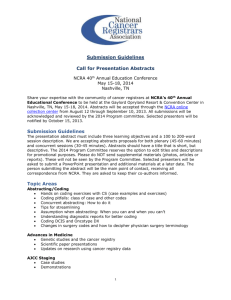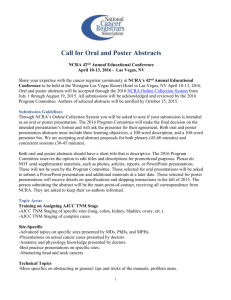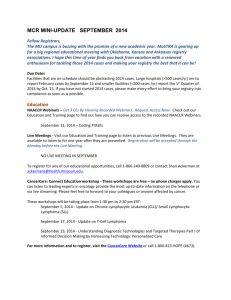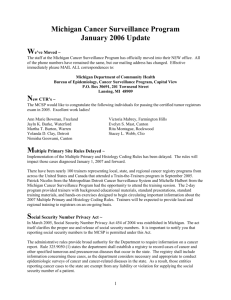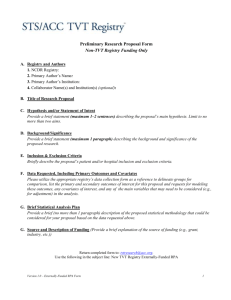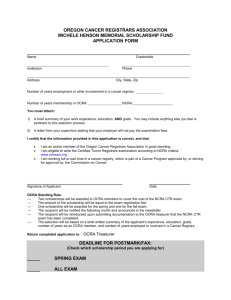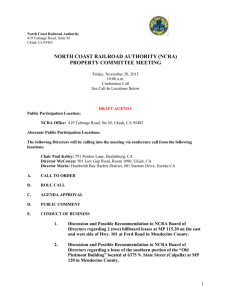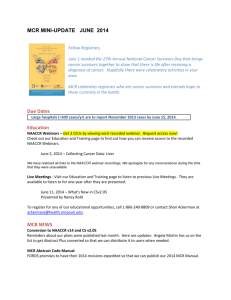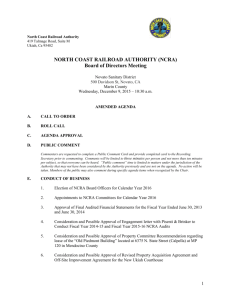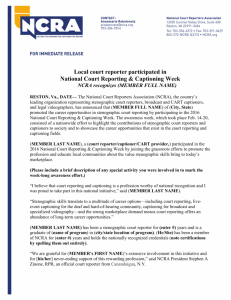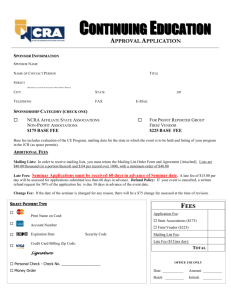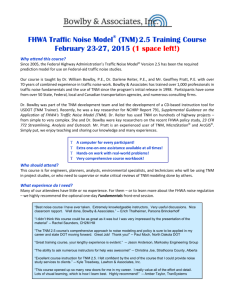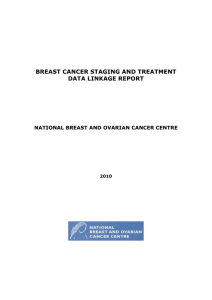Call for Abstracts
advertisement
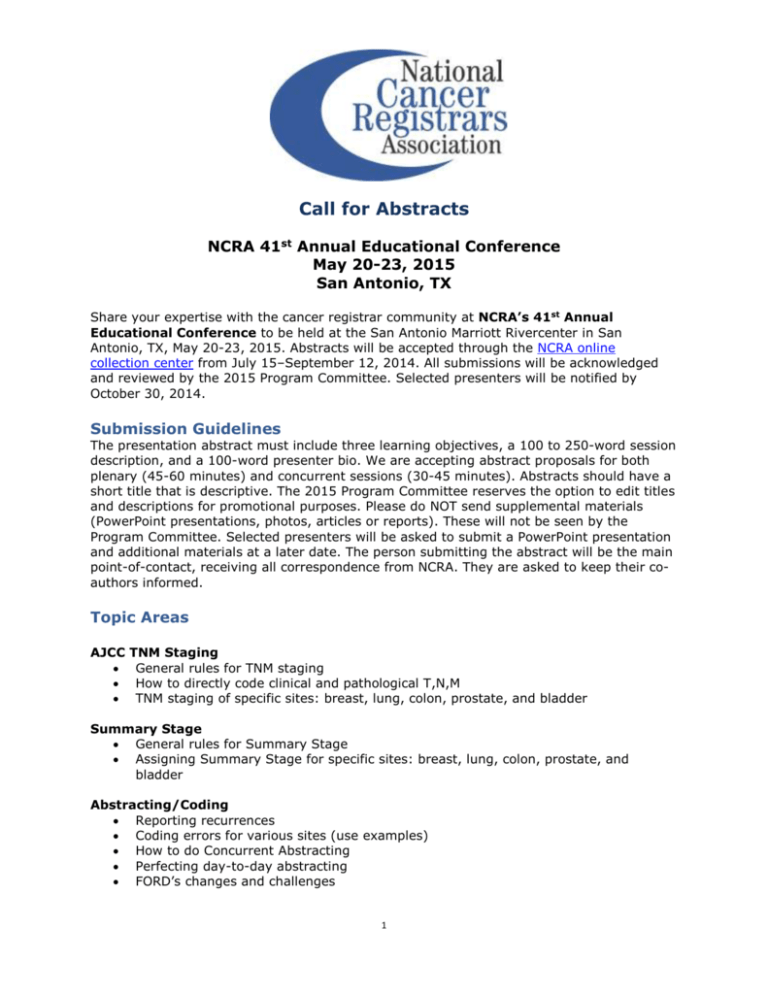
Call for Abstracts NCRA 41st Annual Educational Conference May 20-23, 2015 San Antonio, TX Share your expertise with the cancer registrar community at NCRA’s 41st Annual Educational Conference to be held at the San Antonio Marriott Rivercenter in San Antonio, TX, May 20-23, 2015. Abstracts will be accepted through the NCRA online collection center from July 15–September 12, 2014. All submissions will be acknowledged and reviewed by the 2015 Program Committee. Selected presenters will be notified by October 30, 2014. Submission Guidelines The presentation abstract must include three learning objectives, a 100 to 250-word session description, and a 100-word presenter bio. We are accepting abstract proposals for both plenary (45-60 minutes) and concurrent sessions (30-45 minutes). Abstracts should have a short title that is descriptive. The 2015 Program Committee reserves the option to edit titles and descriptions for promotional purposes. Please do NOT send supplemental materials (PowerPoint presentations, photos, articles or reports). These will not be seen by the Program Committee. Selected presenters will be asked to submit a PowerPoint presentation and additional materials at a later date. The person submitting the abstract will be the main point-of-contact, receiving all correspondence from NCRA. They are asked to keep their coauthors informed. Topic Areas AJCC TNM Staging General rules for TNM staging How to directly code clinical and pathological T,N,M TNM staging of specific sites: breast, lung, colon, prostate, and bladder Summary Stage General rules for Summary Stage Assigning Summary Stage for specific sites: breast, lung, colon, prostate, and bladder Abstracting/Coding Reporting recurrences Coding errors for various sites (use examples) How to do Concurrent Abstracting Perfecting day-to-day abstracting FORD’s changes and challenges 1 Grade as it relates to various sites Reconstructive surgery coding Abstracting specific sites Casefinding: Electronic Path Reporting, hospital merges, manual processes Diseases/Treatments/Anatomy Physician presentation on disease, treatment, and/or anatomy, followed by instructions on coding Stem cell transplants (bone marrow/cord blood) Hematopoietic diseases Pediatric cancers Site-specific presentations: liver, urology, pancreas CoC Open Q&A with CoC Interpreting new/revised standards/Q&A Quality improvement studies to meet standards/Q&A Preparing the SAR/Q&A Preparing for Survey/Q&A Update on standards and implementation of 3.1, 3.2, 3.3/Q&A Informatics Advanced training on informatics Central Cancer Registries Central registry processes Quality assurance in the central cancer registry Coding for central registries Data consolidation/editing in the central registry (perspectives and challenges: big picture) Improving data reporting: central registry, NCDB, SEER, NPCR Data Improving data reporting The value of visual editing when summarizing data How to design studies, analyze the data, and report/present it Preparing presentations, including graphs and statistical reports Uses of cancer registry data How to use Meaningful Use data Data reporting: Where does the data go? Errors, incompleteness, sloppy text: What is your data really saying? Hematopoietic Changes in MPH Database/Manual (solid tumor rules) Hematopoietic Data Base Hematopoietic coding Leukemia/lymphoma diagnosis testing, treatments, and recurrence/progression Professional Development/Management Using RQRS data at Committee meetings RQRS and the use of a nurse navigator Working remotely: what the independent contractor needs to know Role of the cancer registrar in building a healthy community 2 “I Can’t Always Tell You What You Want to Hear:” Working with Hospital Administrators CoC Standard 5.1: Is it impacting the CTR’s work status? Update on mentoring CTR Recruitment: Success Stories Quality Enhance your cancer program through quality outcomes How to be an effective cancer registry quality coordinator Working successfully with your quality management department Pay-for-Performance Key quality measures ICD-10 CM/PCS Implementation 3
